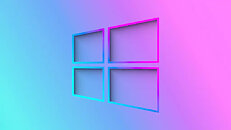
Qualcomm Believes that Snapdragon X Elite Launch Will Coincide with "Windows 12"
During a January 31 Earnings Call, Cristiano Renno Amon (President and CEO of Qualcomm) discussed the upcoming launch of his company's Snapdragon X Elite processor—an ARM-based SoC that is built "for AI" on next generation tablets, notebooks and ultra-slim laptops. The twelve onboard custom Oryon cores are part of a package that will become (in marketing terms): "the most powerful, intelligent, and efficient processor ever created for Windows in its class. With cutting edge responsiveness, navigate demanding multi-tasking workloads across productivity, creativity, immersive entertainment, and more..." Amon and his executive colleagues are targeting a middle-of-2024 launch of Snapdragon X Elite-powered devices, he also mentioned a next-gen version of Microsoft's operating system in the same sentence: "We're tracking to the launch of products with this chipset tied with the next version of Microsoft Windows that has a lot of the Windows AI capabilities. We're still maintaining the same date, which is driven by Windows, which is mid-2024, getting ready for back-to-school."
The rumor mill has "Windows 12" marked down for a summer 2024 launch period—last December, Taiwan's Commercial Times reported on a number sources within the PC manufacturing industry—alluding to a June release date. Intel Chief Financial Officer Dave Zinsner relayed a similar schedule to a Citi interviewer (reported by PC Gamer): "We actually think '24 is going to be a pretty good year for client, in particular, because of the Windows refresh. And we still think that the installed base is pretty old and does require a refresh and we think next year may be the start of that, given the Windows catalyst. So we're optimistic about how things will play out beginning in '24."
The rumor mill has "Windows 12" marked down for a summer 2024 launch period—last December, Taiwan's Commercial Times reported on a number sources within the PC manufacturing industry—alluding to a June release date. Intel Chief Financial Officer Dave Zinsner relayed a similar schedule to a Citi interviewer (reported by PC Gamer): "We actually think '24 is going to be a pretty good year for client, in particular, because of the Windows refresh. And we still think that the installed base is pretty old and does require a refresh and we think next year may be the start of that, given the Windows catalyst. So we're optimistic about how things will play out beginning in '24."

























